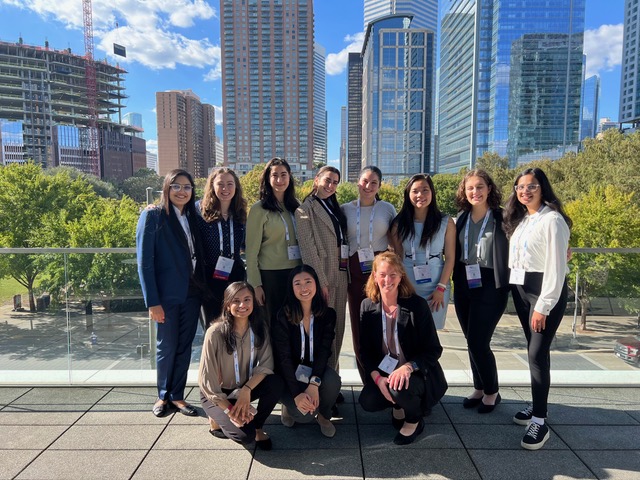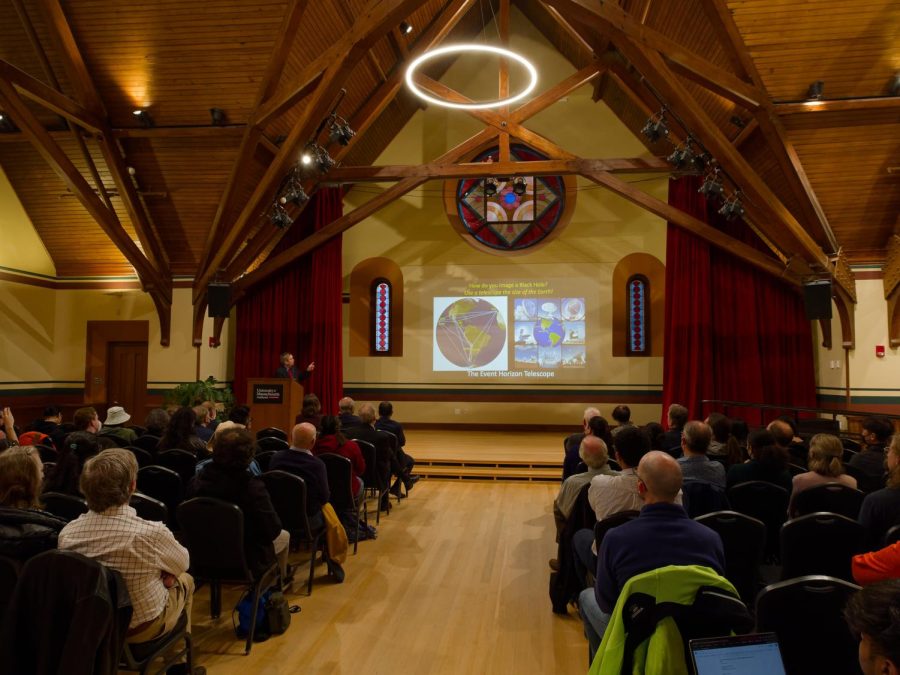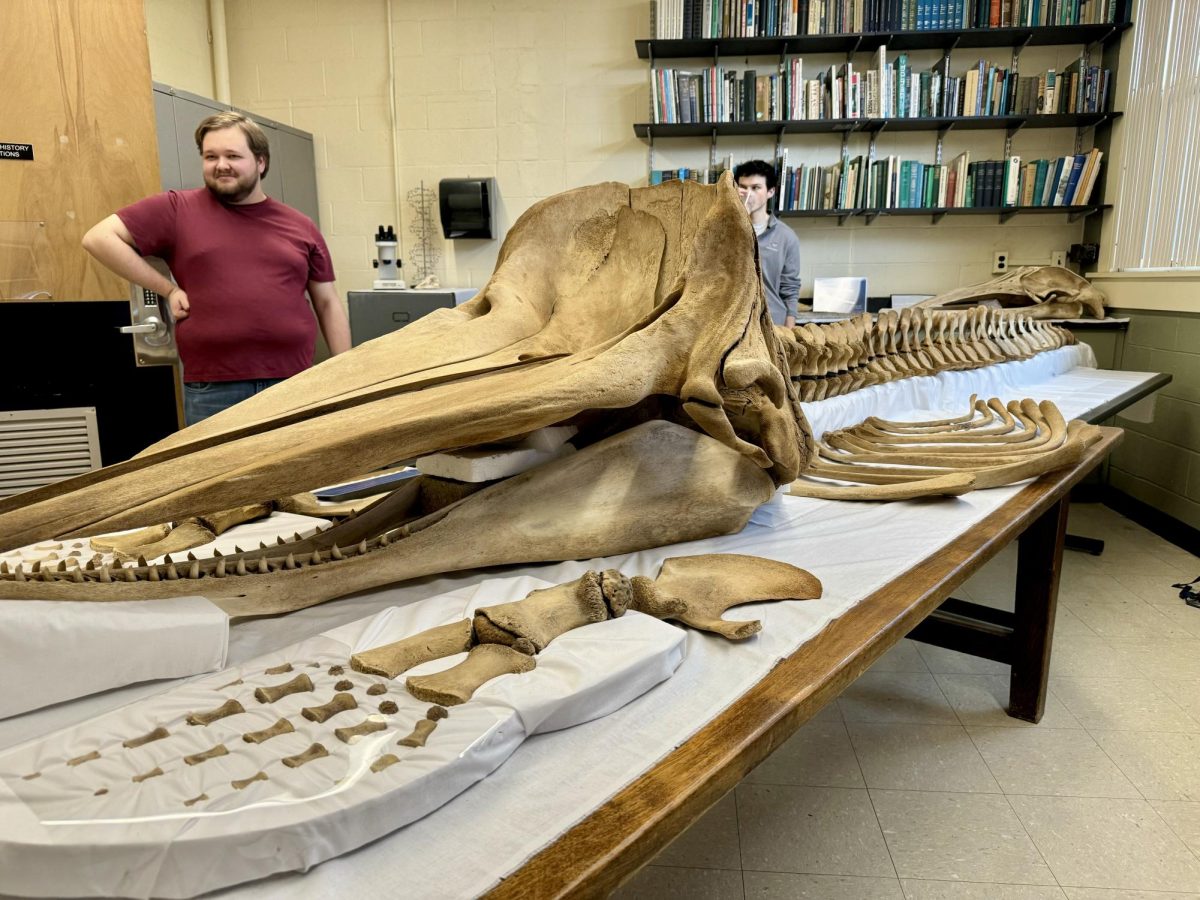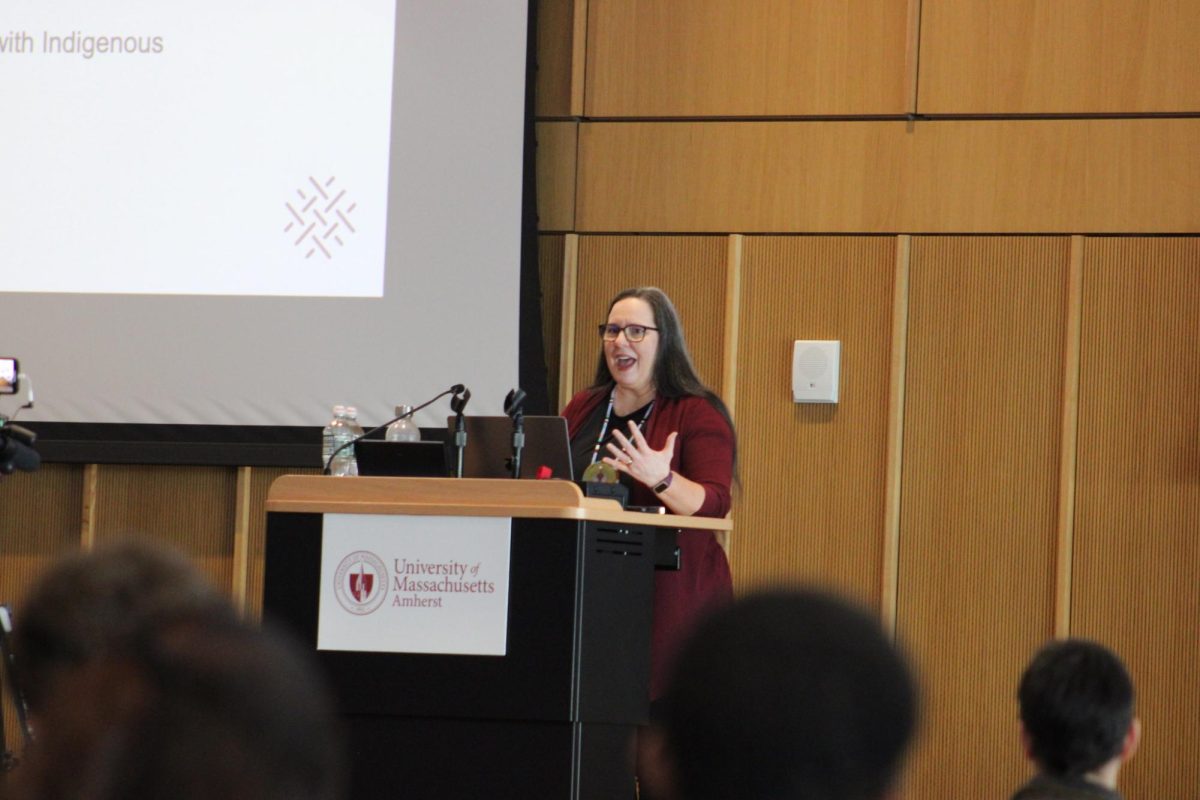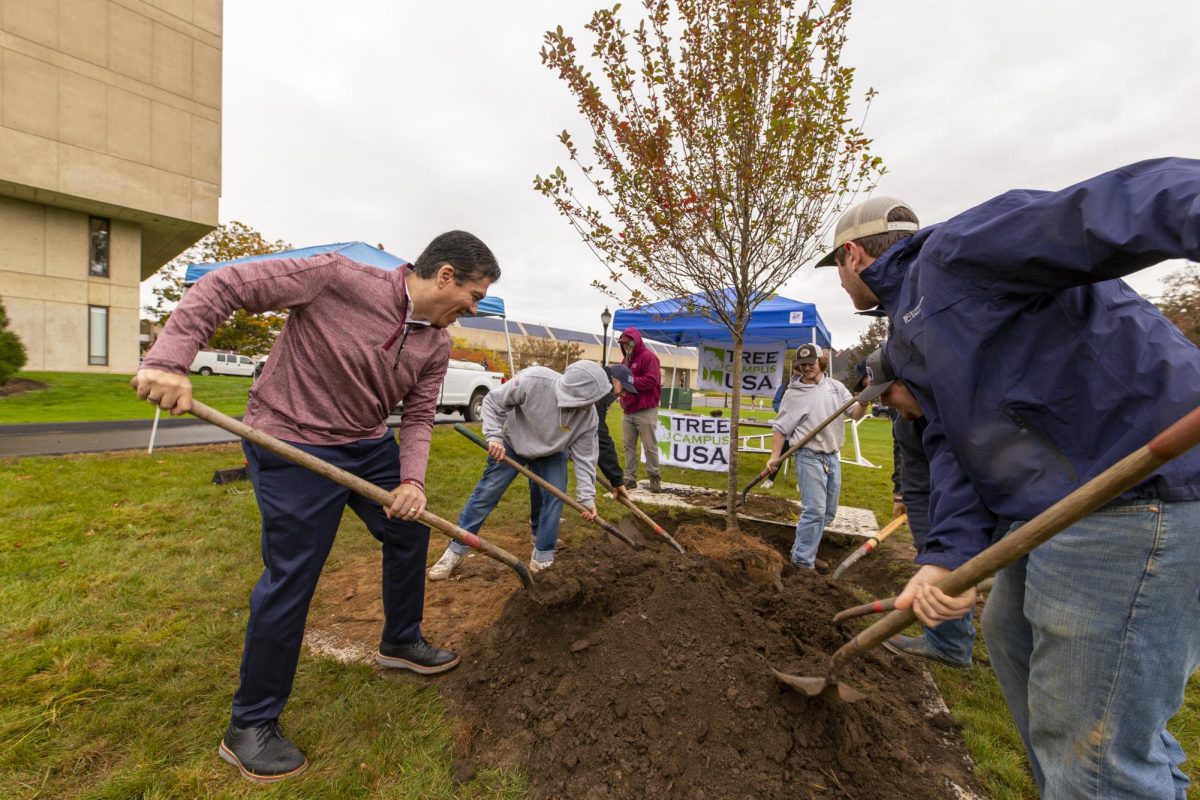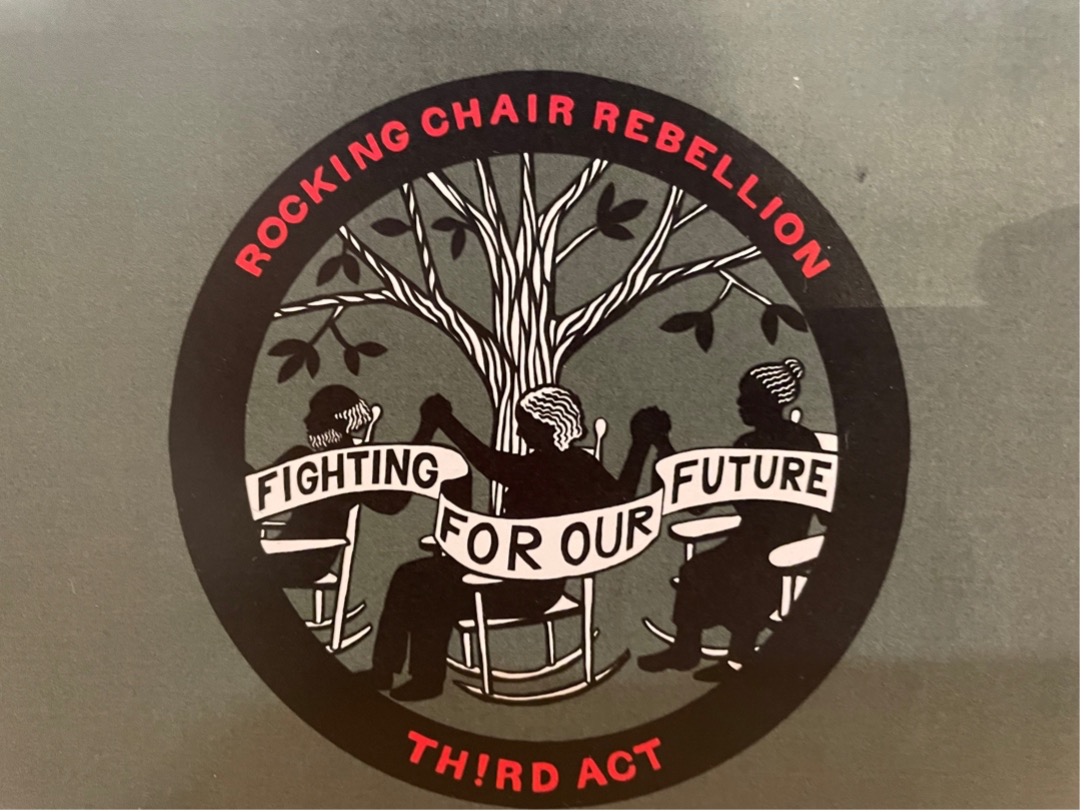
Sixty-eight percent of the electricity generated in Massachusetts in 2011 came from natural gas, yet none of that gas was produced here. The natural gas used to keep the lights on and power mobile devices is piped in from other parts of the country and Canada.
In 2012, the U.S. Geological Survey (USGS) released a report that suggested there may be some untapped natural gas resources underneath the Pioneer Valley. The finding has communities throughout the valley concerned that the controversial technology used to dig up the gas – called hydraulic fracturing – could find its way here.
Rich natural gas reserves in parts of Pennsylvania and New York, for example, have made those regions popular targets for drilling and extracting gas from the Earth.
“That’s a part of the world that looks a little like here on the surface but underground is not a lot like here,” said Peter Vickery, an Amherst-based attorney who spoke Wednesday at a public lecture called “Fracking in Western Mass.? What are the facts?” at the Sunderland Public Library. The event was a joint effort of the library and the Sunderland Energy Committee.
So what does the underlying geology of the Pioneer Valley look like? Steven Petsch, associate professor of geosciences at the University of Massachusetts, who also spoke at the Sunderland event, said that although the report identified a region surrounding the Connecticut River from Deerfield to the Connecticut shoreline as having “geologically reasonable possibilities” of natural gas, the region was not actually explored.
“There has not been any assessment of Western Massachusetts as a potential natural gas resource and given our regional, geologic setting, this assessment is highly unlikely to ever occur,” Petsch said. He added, “We are by no means the largest, most extensive, or most important of these basins to consider.”
The basins he refers to formed more than 200 million years ago when the supercontinent of Pangaea, which included present-day Africa and North America, began to break apart. Over geologic time, these basins filled with layers of sedimentary rocks called shale. Petsch said that few shales contain the remains of organisms, but the ones that do can generate fossil fuels as that organic matter breaks down.
Until very recently, energy companies were not interested in these shale rocks because they didn’t have the technology to extract the gas from them. Now with the invention of “fracking,” a process that involves drilling a horizontal well into layers of shale and blasting it with millions of gallons of water and chemicals, they are able to release the natural gas that has “dissolved into the solids of the rock,” Petsch said.
The problem with our region is twofold. First, shale makes up a very small portion of the bedrock geology in the Pioneer Valley. And only some of those shales are thought to contain organic matter. Petsch said the collective thickness of organic and inorganic shales is less than 50 feet and each individual layer may be less than a foot thick. Thin beds of shale are a major disadvantage for drillers because they can’t actually see their drill bit underground. So a thin shale bed gives them a smaller margin of error.
The other problem is that most of the gas in these rocks has already been released. As you dive down further toward the core of the Earth, temperature and pressure increase. Petsch said that beyond about 200 degrees Celsius, the rock is “unlikely to contain any natural gas.” He said one study has found that the shale in our region is thermally mature and therefore not a viable target for gas extraction.
“So if you wanted to become an investor in the gas industry in Western Massachusetts, you’re about 180 million years too late,” Petsch said.
“Just because fracking will not happen in our backyard doesn’t mean we should forget about it,” wrote Aaron Falbel, a member of the Sunderland Energy Committee who facilitated Wednesday’s lecture, in a letter to The Recorder. “It is happening in someone’s backyard, we are benefitting from it, and that ought to concern us.”
Falbel’s letter was a response to an editorial published in The Recorder earlier this month suggesting that an outright ban on fracking “may be premature,” and that the state should collect more information before coming to a decision.
Despite the unlikelihood of fracking in Western Mass., community members are taking a proactive role against it in light of environmental and health issues that have been reported where fracking does take place. In July, a group of six college students came to Amherst by bicycle with the organization Climate Summer to raise awareness of these issues.
“For a lot of people, the only thing they hear about fracking and natural gas is what the gas companies put out there,” Caroline White-Nockleby, a student at Williams College, told the Amherst Bulletin. “For the first time, I think people are hearing another viewpoint.”
Vickery explained that each state is responsible for regulating the creation and maintenance of wells needed for fracking. In 1982, Massachusetts banned those particular wells, but that was before widespread fracking for natural gas had been developed.
If an energy company becomes interested in exploring the limited gas reserves in the state, the regulation could be challenged. In a blog post last September, Vickery wrote that unlike Pennsylvania and New York, where drilling and extraction has already occurred, Massachusetts currently has the advantage of being a hypothetical target.
“That means towns like Amherst have time to design bylaw amendments that will both safeguard clean air and water and stand up in court,” he wrote.
David Barnstone can be reached [email protected].











